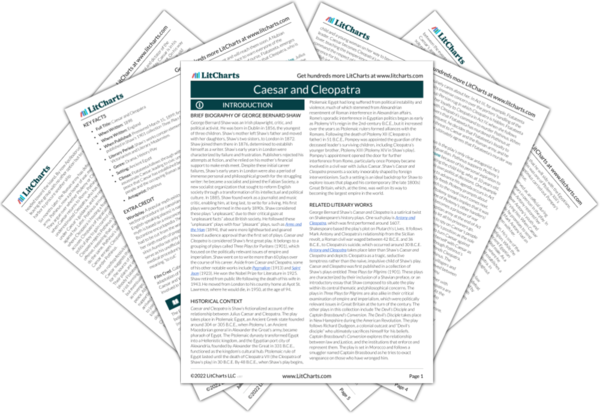Caesar and Cleopatra takes place during Caesar’s civil war (49-45 B.C.E.), a series of battles waged between Caesar and Pompey, and one of the last conflicts in which the Roman Republic took part before it became the Roman Empire. Pompey was executed on September 28, 48 B.C.E., by Lucius Septimius, Achillas, and Savius, who ambushed the unsuspecting Pompey onboard his ship. The irony of Pompey’s death, as Ra suggests, is that Pompey enabled his killers by failing to conquer them. Historically, he is remembered as a hero of the Roman Republic, which, not long after his death, was transformed into an Empire. His equanimity and democracy were his downfall.
